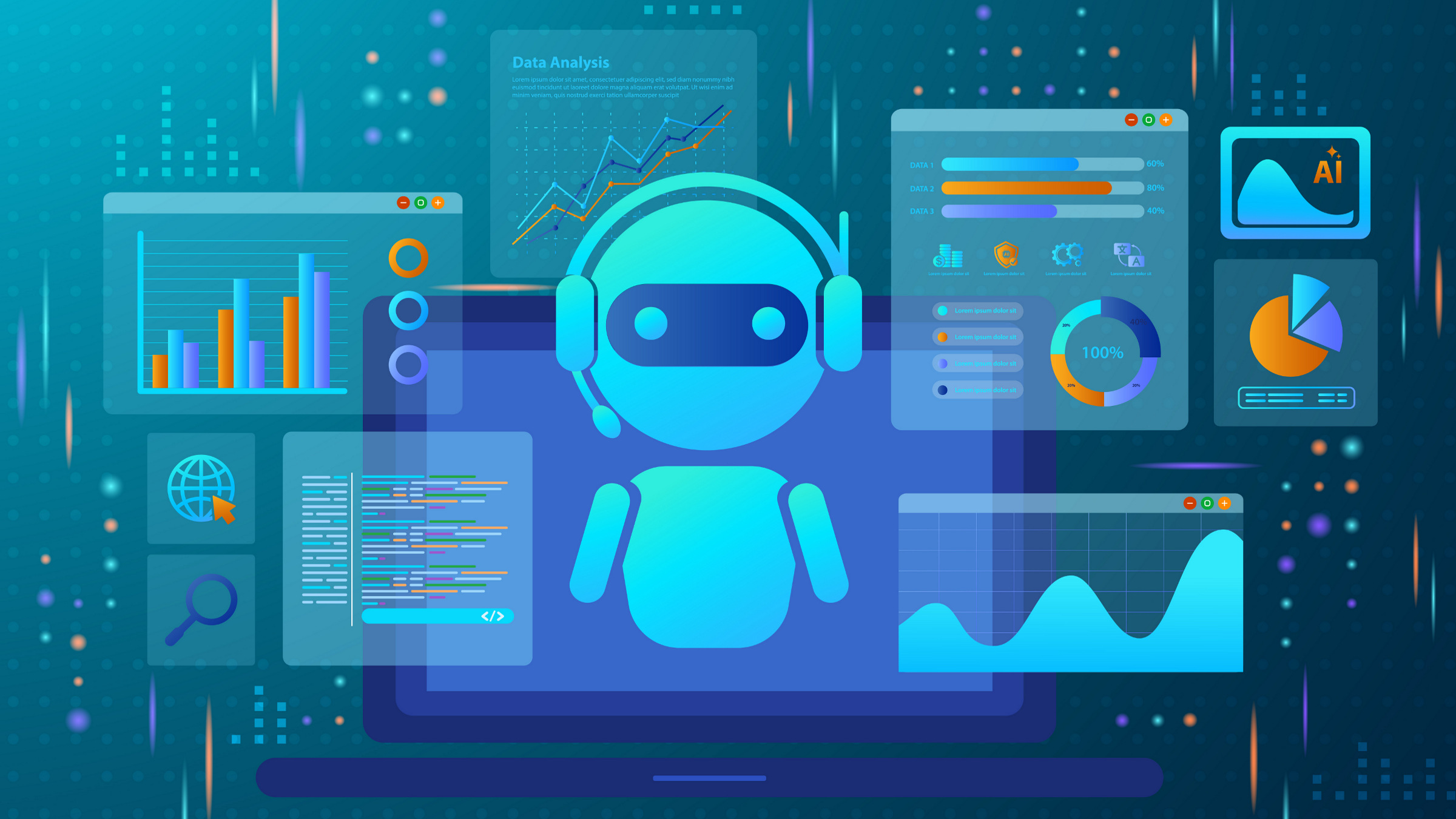The first general ethical principle of the ACM Code of Ethics and Professional Conduct emphasizes the commitment of computing professionals to contribute to society and to human well-being, acknowledging that all people are stakeholders in computing. In this post, we follow this principle and examine the potential contribution of artificial intelligence (AI) in general, and of generative AI (GenAI) in particular, to ensuring educational continuity and adapting the education system to crisis situations.
Whether an international event, like the COVID-19 pandemic, which lasted three years (2020-2023), or a local event, such as Hurricane Katrina in 2005, the ongoing Ukraine-Russia conflict, or the recent floodwaters across central Texas, these adverse events of the past two decades, in which millions of people have suffered, provide us with plenty of opportunities to explore the implications of this ethical principle, in crisis situations, in the educational context.
Pandemics, conflicts, natural disasters, and other emergencies disrupt educational routines and necessitate innovative solutions. Teaching and learning in emergency situations present significant and multidimensional challenges for students, teachers, parents, and the education system as a whole. As part of the activities on educational continuity during crises led by our Education During Crisis forum at the Samuel Neaman Institute, we explore various methods to ensure educational continuity. Our approach assumes that ensuring educational continuity during routine periods will also guarantee continuity during emergencies.
Specifically, we use the emergence of GenAI at the end of 2022 to highlight the importance of the first ethical principle mentioned above in crisis situations in the context of education, and outline several possible ways to integrate GenAI into education during emergencies.
Personalized learning support: GenAI enables the automatic creation of personalized learning materials for students at different levels. For example, AI-powered platforms can provide interactive learning experiences, such as dynamic quizzes adapted to each student’s level, offering immediate feedback, and can generate texts, illustrations, and videos that illustrate educational topics in various ways. During routine periods, personalization is important due to student diversity and the recognition by many education systems that adjustments are necessary. For instance, GenAI can make content more accessible to learners with visual or hearing impairments by creating subtitles, transcribing audio, and converting text to speech. Personalized learning is especially critical during crises, as students may experience significant learning gaps. AI-based systems can analyze student performance and offer tailored learning paths, generating exercises and materials according to individual needs.
Translation and accessible language: In times of emergency, many students may find themselves in environments where the language of instruction is not their native language. Consider, for example, the Russia-Ukraine war, which forced families to migrate to countries with different spoken languages. In such cases, AI-based tools can provide instant text translation, and language generation models can formulate culturally and linguistically adapted materials. These capabilities are also highly beneficial in routine situations, for instance when learning a foreign language or communicating with students worldwide.
Emotional support and learning motivation: In emergency situations, students may experience psychological stress and anxiety that can impact their ability to learn. GenAI can serve as a tool for emotional support through educational chatbots that provide encouragement, positive feedback, and emotional management tools. For example, AI can integrate educational games and interactive activities that promote learning through play. In routine situations, such tools—when properly trained, configured, and developed—can be valuable for students facing complex circumstances at school, at home, and in society in general.
Professional development for teachers: GenAI tools can help teachers quickly adapt lesson content to new teaching and learning conditions by enabling personalized lesson planning for individual students or classes. Furthermore, these tools can offer methods for analyzing educational situations and suggest strategies for addressing them. In emergency situations in which new and unfamiliar challenges arise daily, such tools can help teachers tailor lesson plans to suit each student’s learning conditions. In routine times, these tools can support teachers in fulfilling their roles in an evolving educational landscape that is increasingly recognizing the importance of personalized learning.
Real-time information management and distribution: During crises, accurate and available information and data are critical for continuing educational activities. AI-based systems can assist in managing educational content, disseminating updates, creating dynamic schedules, and analyzing attendance and engagement data for students and teachers. Such data allows educational and support staff to track student progress, monitor the availability and activity of educators, and plan more effective interventions. Implementing these systems during routine times can better prepare the education system for times of emergency.
Automatic documentation and insight generation for future planning: GenAI tools can automatically document teaching and learning processes in real time, in both routine and emergency situations. This type of documentation can serve as a foundation for a cyclical risk management process, supporting the development of effective educational policies and responses and helping to build an accessible knowledge base for future emergencies.
Challenges
AI, and GenAI in particular, are driving significant changes in education, making it essential to evaluate their potential contributions during emergencies. The ability of GenAI to produce content, support personalized learning, translate and provide accessible information, offer emotional support, and manage educational resources efficiently makes it a powerful tool in addressing the challenges posed by crises. Nevertheless, it is crucial to ensure responsible AI use while maintaining privacy, fairness, and a human-centered approach to education. It is important to remember that AI is a technological tool that requires caution to ensure fair, equitable, and safe use, and to prevent potential harm. Irresponsible use of AI in times of crisis may negatively impact users in various ways—both in the short and long term. Although the challenges highlighted below must be addressed in emergency contexts, we note that addressing these challenges under normal conditions will strengthen the education system, promote its advancement, and enhance its ability to respond to unexpected crises.
- Digital inequality: Access to technology is not uniform, especially during crises. Not all students have access to computers, the Internet, or smart devices, creating significant learning gaps. Additionally, not all students and educators have the necessary skills to use AI technologies in an effective manner.
- Privacy and data security: During crises, particularly in times of war, cybersecurity risks increase. AI systems may be vulnerable to cyberattacks that could expose sensitive information about students and educators, including emotional, mental, medical, academic, and professional data.
- Pedagogical implications: Students may become overly dependent on AI, potentially impairing their ability to learn independently and develop fundamental learning skills and critical thinking. Furthermore, excessive interaction with AI at the expense of human interactions may negatively affect students’ emotional and social development; information overload or excessive use of AI systems may also lead to cognitive and emotional strain on both students and teachers, increasing stress, anxiety, and confusion during sensitive and difficult times.
- Responsibility and ethics: Increased use of AI may create ambiguity regarding accountability and ethical guidelines regarding its implementation, especially during emergencies. This ambiguity could undermine the professional judgment of educators and their decision-making processes.
Conclusion
Our main message is that the proper integration of AI technologies during routine times can ensure the continuity of learning even in emergencies and times of uncertainty. By advocating for the thoughtful integration of AI technologies during routine periods, we aim to ensure that learning continues even in times of crisis and uncertainty. This proactive approach supports students’ ongoing development and provides teachers with a stable, professional environment, reflecting a commitment to fairness, ethical responsibility, and the prevention of harm.
This message is closely aligned with the first general ethical principle of the ACM Code of Ethics and Professional Conduct, which speaks about contributing to society and promoting human well-being.
In addition to this general principle, our approach also resonates with the section on professional responsibilities, which encourages computing professionals to develop systems that are robust, usable, and sustainable, as well as the leadership principles, which emphasize anticipating and managing the societal impacts of computing technologies. Together, these ethical foundations underscore the importance of designing AI-supported educational practices that are not only technically sound but also socially responsible and inclusive, not only in routine times, but also in crisis situations, whose frequency may be reasonably assumed to increase due to various global phenomena and events.

Orit Hazzan is a faculty member at the Faculty of Education in Science and Technology at the Technion–Israel Institute of Technology, a senior research fellow at the Samuel Neaman Institute for National Policy Research, and head of the Forum for Education in Emergencies at the Samuel Neaman Institute.

Einat Shoshan-Rafaeli is a faculty member at the Faculty of Education and the Department of Civics and Democracy at Israel’s Oranim College, a research fellow at the Samuel Neaman Institute for National Policy Research, and a member of the Forum for Education in Emergencies at the Samuel Neaman Institute.

Tsipy Buchnik is a senior research fellow at Israel’s Samuel Neaman Institute for National Policy Research. Her areas of expertise include policy and indicators for science, technology and innovation, scientific and technological workforce, higher education, and education.



Join the Discussion (0)
Become a Member or Sign In to Post a Comment